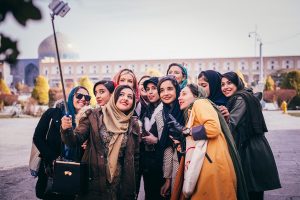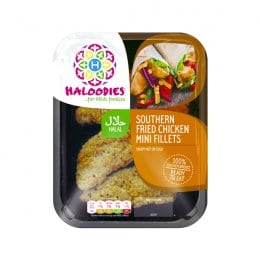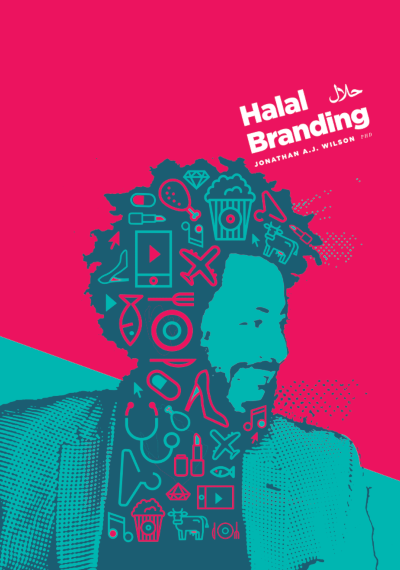By Alicia Buller – Arabian Business

As the global Muslim population grows at a rapid pace, the potential of the Islamic economy is ripe for the picking.
Around 1.8 billion Muslims are walking the planet – with a median age of just 24 years – and together they spent $2.1 trillion in 2017, according to the latest State of the Global Islamic Economy Report.
By 2060, there will be 3 billion Muslims on earth – it’s not difficult to do the maths on the world’s fastest-growing faith-based economy.
Multiple sectors
The Islamic economy comprises a vast range of sectors from modest fashion and beauty, to halal tourism and Islamic finance.
The last five years have seen an explosion of new products all designed to cater for the modern Muslim, such as ‘modest’ fashion ranges in mainstream stores, the first tech-smart sports hijabs, Muslim ‘Barbies’, fine dining halal meal kits, and a range of GPS and virtual reality apps to help Muslims live their lives in style and within the bounds of their faith.
The Islamic economy is also tapping into the growing global trend for ethical products and services. Halal products like Sharia-principled Islamic finance and farm-to-fork halal agriculture dovetail with ethical values and aspirations.
Competing forces
There are many key drivers – as well as barriers – within this fledgling global industry.
A confluence of mega trends, such as globalisation, immigration and the rise of technology is fuelling a modern, cash-flush community of faith-conscious consumers.
Muslims are globally connected, tech-savvy, and they can be great allies in sharing brands
As Shelina Janmohamed, vice president of Islamic branding agency Ogilvy Noor, puts it, “They [Muslims] believe that faith and modern life go hand-in-hand – they are globally connected, tech-savvy, and they can be great allies in sharing brands.”
 Khawaja, whose burgers and prepackaged meats are in most of the UK’s mainstream supermarkets, says the ‘new generation’ of Muslims is affluent and engaged with social media. He says, “They see gourmet burgers on Instagram and they want it too. They want the same choices; whether it’s food, clothes, restaurants or technology.”
Khawaja, whose burgers and prepackaged meats are in most of the UK’s mainstream supermarkets, says the ‘new generation’ of Muslims is affluent and engaged with social media. He says, “They see gourmet burgers on Instagram and they want it too. They want the same choices; whether it’s food, clothes, restaurants or technology.”
Haloodies is one of the few true halal ‘brands’ in the modern sense – it has universal appeal for Muslims and non-Muslims and tells a consistent story.
According to Noman Khawaja, founder of Britain’s first premium halal convenience food brand, Haloodies: “Muslims want what non-Muslims have.”
Khawaja says the lack of ‘widespread cohesive branding’ is one of the reasons why the rise of the Islamic economy is ‘steady but not rapid’.
Getting it right
 Professor J A Wilson, branding expert and author of Halal Branding, says companies who want to target modern Muslims would do well to simply ‘market a great product that has cross appeal to various faiths’.
Professor J A Wilson, branding expert and author of Halal Branding, says companies who want to target modern Muslims would do well to simply ‘market a great product that has cross appeal to various faiths’.
Wilson laments: “A lot of the time, what we see is ethnic, localised marketing; or simply a halal certification logo, which is ingredient branding rather than full-blown branding; or some cosmetic religious messaging. The assumption appears to be that if you do this, then Muslims will consume.”
He says companies who ‘sell low quality products above their value because of restricted dietary requests’ are also doing halal branding a disservice.
Everyone out there today is seeking something better than the last product they had
Janmohamed agrees there is ‘a long way to go’, but says she is seeing positive green shoots. “People are coming to us and asking how to embrace it properly. They are nervous; they want to get it right.”
She says in terms of taking a national cohesive approach to the Islamic economy, South East Asia has ‘really taken the lead from the start’ in consolidating a number of different trends.
Malaysia is listed as the number one Islamic economy in the State of the Economy Report, followed by the UAE, Bahrain and Saudi Arabia.
Certification crises
Another drag on the Islamic economy has been the lack of universal halal certifications. For decades, various halal scholars and bodies have squabbled over the minutia and have so far rendered global certification efforts moot.
In a breakthrough in February, the UAE took a major step forward by announcing a universal platform for cross-Arab certification. The first Arab halal system will include mutual recognition of halal certificates and ease the trade movement between Arab countries and the world.
“The halal world is going to change with this,” says Salama Evans, editor of HalalFocus.
Evans says ‘provenance’ is a key driver of the Islamic economy. “With the increased incidents of halal food scandals, halal food suppliers, retailers and restaurants are scrambling to reassess their supply chains. Consumer trust is low and they are no longer satisfied with accepting halal certification at face value.”
She adds: “There is an increased need for food safety, transparency, traceability and anti-counterfeiting measures in the halal sector and stakeholders, despite knowing this, aren’t investing in it. The multinational companies (MNCs) are totally committed to it for future food safety, and the old school will be left behind with MNCs now producing their own halal products.”
Evans welcomes the arrival of new firms that are using technology as a tool to track provenance trails and clean supply chains, such as promising start-up, Singapore-based online OneAgrix – Global Halal Food, Agri & Nutraceuticals Marketplace.
There is an increased need for food safety, transparency, traceability and anti-counterfeiting measures in the halal sector
As the Islamic economy becomes increasingly tech-led, blockchain will likely play a leading role in tracking everything from ingredient sourcing to finance chains, she says.
Room to grow
There is significant scope for growth in the Islamic economy; there was a mere $800m in disclosed private equity investments over three years, far less than the almost $600bn in private equity and venture capital investments that occurred globally in 2017, according to the State of the Economy Report.
The report also estimates that the Islamic finance sector has $2.4 trillion in total assets. It says food and beverage leads Muslim spend by category at $1.3 trillion, followed by clothing and apparel at $270bn, media and entertainment at $209bn, travel at $177bn, and spending on pharmaceuticals and cosmetics at  $87bn and $61bn, respectively.
$87bn and $61bn, respectively.
Having been in the business for many years, Evans predicts that the modest fashion and cosmetics sectors are set to boom, partly due to the ‘virality’ of their demographics.
She says: “The halal food sector will also thrive and even though in plain sight, these sectors seem to be in different silos, they are actually intertwined. Halal cosmetics do after all need halal food ingredients.”
Professor Wilson predicts food, drink and finance will drive the bulk of the growth, because of the ingredient restrictions, as well as large growth in travel, hospitality, clothing and education.
Ultimately, halal branding should want to go mainstream
But Wilson says he is wary of ‘ring fencing’ sectors: “There are mainstream brands that offer these products and services and many people appear to be happy with them or prefer picking what they want and leaving the rest, which feeds into my argument about Muslims not wanting to feel alienation.
“Ultimately, halal branding should want to go mainstream, and if that’s the case, you can’t build siloed brands that are by Muslims for Muslims.”
The ‘non-Muslim’ opportunity
Khawaja says there is a major opportunity to educate the world about the ethicalness of halal, what he terms ‘true halal’ – which is impeccably sourced and imports goodness, welfare and purity into its products.
He says: “Everyone out there today – whether faith-driven or not – is seeking something better than the last product they had. People are taking more care of their bodies, so they want organic meat.
“The thing is, if you truly understand how halal is sourced, it is better than free range and organic. We need to get the message out. This is key to the future – this will take time, education and money.”
Food trends
Numerous product categories are ripe for exploration in the halal food industry, notably organic products:
Organic food is gaining substantial traction in Saudi Arabia, with 33 percent of consumers purchasing more organic products over the last 12 months, according a survey by Arla Foods.
There is a halal mozzarella boom in Italy, with annual production reaching over 10 million kilos by end of 2016, and with one in 10 mozzarellas destined for OIC countries, the UAE is a top destination.
There is substantial opportunity for halal sweets, as evidenced by Haribo’s opening a halal sweet shop in the UK.
Source: State of the Economy report 2018/19
Hungry for growth
Halal food is an attractive prospect for investors, but still an unrealised opportunity. M&A and investment activity is still just a trickle.
– The Savola Group has acquired 51 percent of Al Kabeer, a frozen food company with operations across the GCC
– Malaysia’s largest QSR operator, QSR Brands, is seeking a $500m IPO
– One World Foods, a Canadian producer of ethnic and halal foods, has secured an equity investment from District Venture Capital
– UK-based halal baby food manufacturer, For Aisha, has secured funding through the UK’s Enterprise Guarantee Scheme
– Al Islami Foods has sold a minority stake to Mitsubishi Corporation
– Perwyn Private Equity acquired European halal food brand, Isla Delice
Source: State of the Economy report 2018/19



